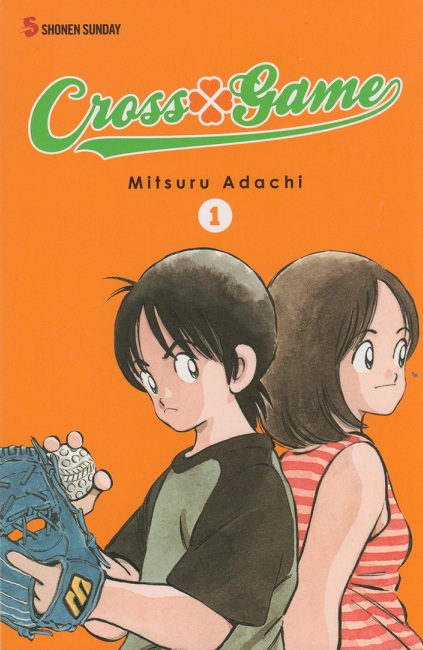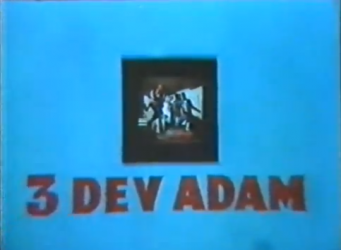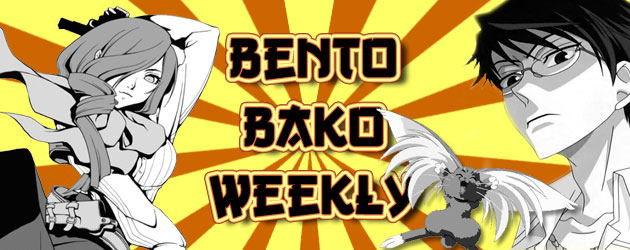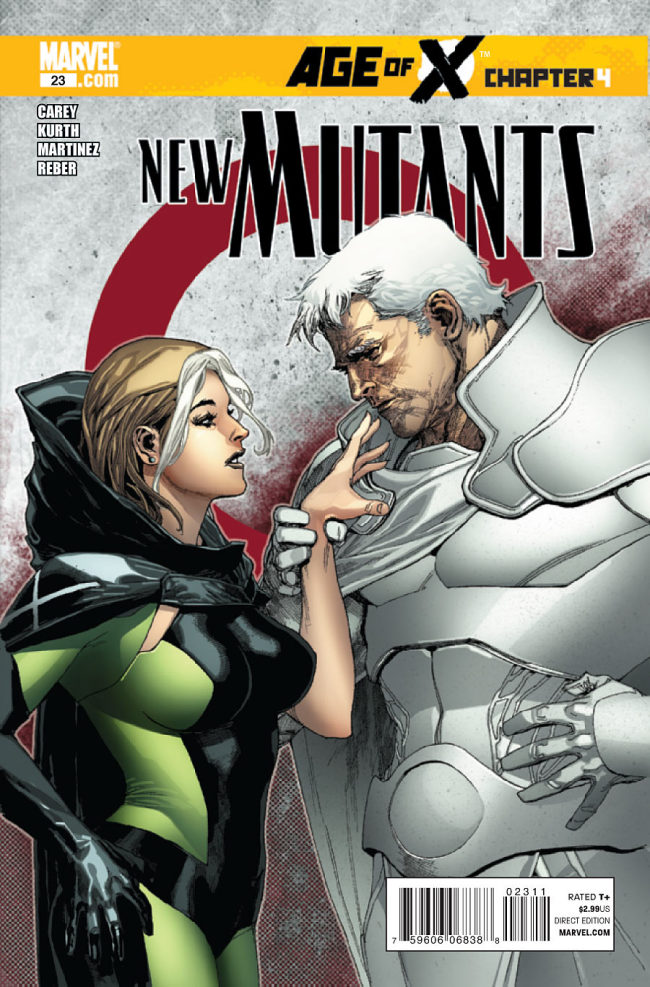 Title: Cross Game
Title: Cross Game
Author: Mitsuru Adachi
Publisher: Viz Media (Shonen Sunday)
Volume: Volume 1 (contains volumes 1-3, of 17), $19.99
Vintage: 2005-2006 by Shogakukan in Japan, October 2010 (out now) from Viz Media
Genre: Sports, baseball, romance, coming-of-age, comedy
Fifth-graders Ko Kitamura and Wakaba Tsukishima live next door to each other. Ko’s family runs a sports equipment store, while Wakaba’s owns a batting center and a small cafe. They were born on the same day in the same hospital, and Wakaba has always been in love with Ko. Unfortunately, most of the boys in their grade are in love with Wakaba, including the toughest kid in class, Akaishi, which puts Ko in some troublesome situations. Because Ko monopolizes Wakaba’s time, the next youngest daughter in the Tsukishima family, Aoba, hates him. Ko, who has no apparent interest in baseball, is dragged into playing on a local team by his friend Daiki Nakanishi. He’s never played baseball, or even a game of catch, but since he was three, he’s been batting at the Tsukishima batting center. More of his mysterious talent makes a brief appearance when he is made to pitch for a game against Aoba’s team. Wakaba tells Aoba that Ko will be a great pitcher one day, able to pitch a 100 mph ball, like Aoba’s ideal man. But she warns her sister not to fall for Ko, because he belongs to her. Wakaba has a dream that the boys will grow up to play in the big Koshien baseball finals, but it’s a dream she will never see herself, as Wakaba drowns while saving a younger girl at swimming camp.
Four years later, Ko, Nakanishi, Akaishi, and Aoba are all in junior high. Only Akaishi continues to play baseball as a catcher. Ko has been rather lost since Wakaba’s death, and Aoba, who still hates him, has become absorbed in pitching for the junior high boys baseball team. Yet even though he is not on the baseball team, Ko, impressed by Aoba’s pitching ability, has been working out and secretly practicing on his own. When Nakanishi casually invites Ko to play a friendly game of baseball with some local boys, he’s surprised to find that Ko has become a skilled pitcher. Akaishi agrees to let Ko onto the baseball team, but only if his talent is kept a secret until high school, and only if Nakanishi joins as well. Meanwhile, Aoba starts noticing things about Ko that she never dreamed would get her attention. The people around her start commenting on his pitching skills, and his quick eyes, though she tries not to believe them. Time passes, and Ko, Nakanishi, and Akaishi enter high school and join the baseball team. But it won’t be an easy time for them. The upperclassman players are arrogant, there’s a new coach (Shugo) who only cares about being the best and winning every game (and only cares about the players as mere tools to win), and there’s a new ball player who is an expert with the bat, Yuhei Azuma. The new coach held varsity tryouts, and most of the players who made the team were scouted and brought in as scholarship students. The majority of the former team was relegated to the portable team, and ordered to stay out of the new coach’s sight. Ko, Akaishi, and Nakanishi didn’t even bother to try out for varsity, and instead practice with the old coach, preparing for a scrimmage against the varsity team, when they will bring out everything they have.

Back on the junior high team, Aoba is still the lead pitcher, but as a female, she has no real future. She can’t play in official games in high school. Shugo stops by the junior high field to look at the upcoming talent, and notices Aoba pitching. His ace batter Yuhei isn’t getting the proper batting practice, as the pitchers on the team aren’t a match for his skill. Coach Shugo decides to use Aoba as a batting machine for Yuhei’s practice, not caring that the strain will likely burn her out (the scene is almost painful to read). The boys overhear the high school team’s manager refer to Aoba as a disposable pitcher, which strengthens their resolve to oust Coach Shugo. As the scrimmage game approaches, the boys get ready to show Coach Shugo and the varsity team that they’re not simply fodder, and prepare to take the varsity players down a peg.
Cross Game is very cute and quite adorable. It’s amusing when it should be (and there’s quite a bit of humorous fourth-wall breaking), and heart warming (and occasionally heart breaking). Unfortunately, I have zero interest in baseball, so it doesn’t appeal to me as a sports comic, and it just doesn’t excite me, personally. I think it’s just too simplistic to really pull me in. That’s not a bad thing, as it’s part of the book’s charm, and I don’t mean to say that it’s at all shallow, though it is a bit old fashioned. It just doesn’t quite do it for me, yet. The first “volume” was actually a little boring, until Wakaba died and the story changed its focus. Her presence remains even after her death, in the memories of those whose lives she touched. Her spirit continues to watch over everyone and she cheers them on in their memories. It is because of Wakaba that Akaishi continues playing baseball, even when he has to deal with bullying upperclassmen. Even Ko gets involved again because of her dream. Hints of a future romance begin to form as Aoba hears her sister’s words echo in her mind while she watches Ko play baseball. Wakaba is everywhere, and her cheerful, supportive personality, even in her absence, gives strength to those she left behind.
The title is about playing baseball, but it’s also a romantic comedy, and it’s especially a coming-of-age story. Adachi will let us watch these characters grow up through high school, and work toward their dreams. Or specifically, Wakaba’s final dream of everyone going to Koshien together. Adachi does a great job writing these characters in a genuine way, as realistic children. They change as they grow, but still retain their distinct personalities. The character designs and art style are old fashioned, but this is a fairly recent title. It works well, and adds to the charm of the story, but sometimes the characters’ faces are a little vacant looking; they don’t have very many expressions. It’s still well drawn, and it’s also very well written.
If you prefer to watch rather than read, there’s also a 50-episode anime licensed by Viz Media, which can be seen streaming on Viz Anime. I’m not sure what their intentions are regarding a DVD release, but I don’t think any such plans have been announced yet.
Kris
kristin@comicattack.net
@girlg33k_Kris
Review copy provided by Viz Media.




I didn’t think it was really the old-fashioned style in general that would put people off to this story, but rather the awkward delivery of the humour and molasses-paced events. I do think Wakaba’s death lent a lot of…what do you call that…her death made all the previous events that much more impactful, I thought. To me it really illustrated how we let events just sort of slip by until a loss makes us appreciate what we had…or something. I’m currently reading the middle-school stuff which is beyond frustrating though: for each silent panel of silent character development, we get five panels we get ten of a comic-relief throwaway in serious need of a brutal stabbing. Overall, I’ll still say I really like it, but that answer could change depending on how much nothing happens in the future.
Also, thanks for actually pointing out that there’s three volumes in this book; no other review I’ve read explained that as well, so I was getting pissed that they kept spoiling Wakaba’s death, haha. So I take it that the physical book jumps ahead of the serialization on Sunday which is currently at Part 2: Chapter 5?
Ick, sorry, that was a mess, haha.
Haha, yeah, it’s hard to talk about the rest of the book without mentioning Wakaba’s death. I did consider not mentioning it, but I felt that her presence later in the story, the effects of her death, was important.
Let’s see, the Shonen Sunday Website…is indeed now behind the printed version.
I didn’t really have any problems with the humor. But I do admit that it’s hard to tell if this is supposed to be a serious story or an all out comedy.
When you put three volumes together like this…it didn’t really feel slow to me. I don’t recall having any problems with the pacing.
Pingback: Tweets that mention Bento Bako Weekly: Cross Game vol. 1 -- Topsy.com
Pingback: Boys over propaganda « MangaBlog
Pingback: Bento Bako Weekly: (Mostly) Manga Gift Guide
Pingback: Bento Bako Lite: January 2011 Previews
Pingback: Bento Bako Weekly: Cross Game vols 2&3 (MMF)
Pingback: MMF: Day One Round-Up | The Panelists